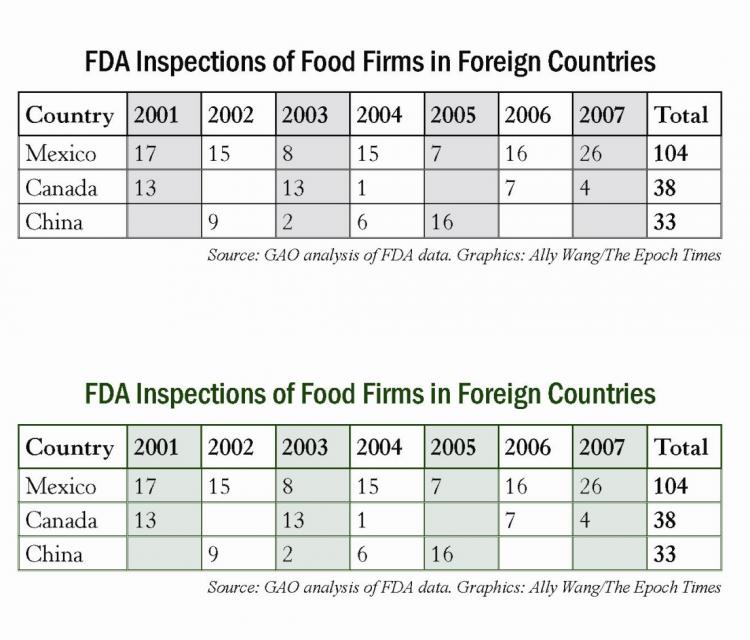The U.S. government agency responsible for inspecting imported milk products has not inspected food firms inside China since 2005, according to a report released by the Government Accountability Office (GAO) Oct. 10.
According to the report on food labeling practices of the Food and Drug Administration (FDA), the FDA is responsible for the safety of roughly 80 percent of the U.S. food supply. The total includes an annual tally of $49 billion in imported food.
“The findings of this latest GAO investigation that the FDA seems incapable of preventing companies from providing false or misleading information to consumers are very troubling,” said Congresswoman Rosa DeLauro (D-CT) in a statement after the report was released earlier this month. DeLauro is chair of the House Appropriations Agriculture Subcommittee, which oversees the FDA’s budget. She is also a co-founder of the Congressional Food Safety Caucus.
The discovery of the poisonous chemical melamine last month in infant formula in China sparked an international scare over products with milk from China. Melamine-tainted food products have been found in several countries, including the U.S.
The most recently recalled product made in China is Koala’s March brand cookies, distributed by Lotte USA, Inc. Contaminated cookies have been found in Alabama and Connecticut.
China ranks third among nations as a source of food products imported by the U.S., after Canada and Mexico.
Melamine is used for fire retardants and as a polymer resin (such as on plastic plates). The high nitrogen of melamine, when added to a food product, can make the product appear to have a higher protein concentration.
Less Than One Percent
According to Carl Nielsen, Director of Imports for the FDA from 1999-2005, the Agency cannot manage products to adequately protect public health.
“The Agency really doesn’t really know what is going on as it relates to imported commodities,” says Nielsen. “It’s just a matter of math. On food you are looking at less than one percent that’s finished product testing.”
He adds that work done by the FDA overseas to ensure that products imported by the U.S. are safe is also questionable.
“Foreign inspections are less than 100 a year for the food industry, and there’s probably close to 200,000 foreign food firms in 150 plus countries,” says Nielsen.
Of foreign food firms, only 96 were inspected by the FDA in 11 countries in 2007. That number has decreased steadily every year since the 211 inspections made in 26 countries in 2001.
The report also examined the FDA’s lack of oversight on food labels, which drew sharp criticism from the Center for Science in the Public Interest (CSPI).
“Millions of Americans are counting on label information to protect their health,” said CSPI senior staff attorney Ilene Ringel Heller in a statement.
The effects of melamine on humans are relatively unknown, but it can cause kidney damage and can lead to kidney crystals and stones. It is the same chemical that caused the deaths of over 1,000 pets in the U.S. in 2007.
Product recalls in the U.S. are almost always voluntary for the company involved, and recalls in the U.S. so far have been relatively small.







Friends Read Free